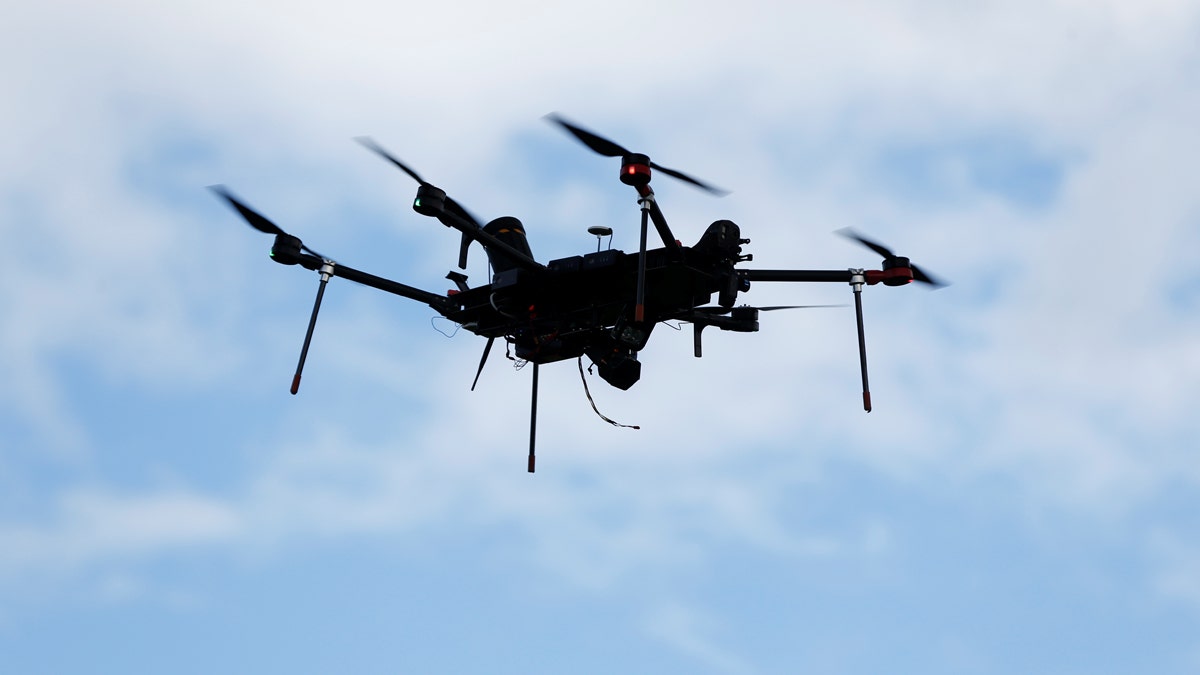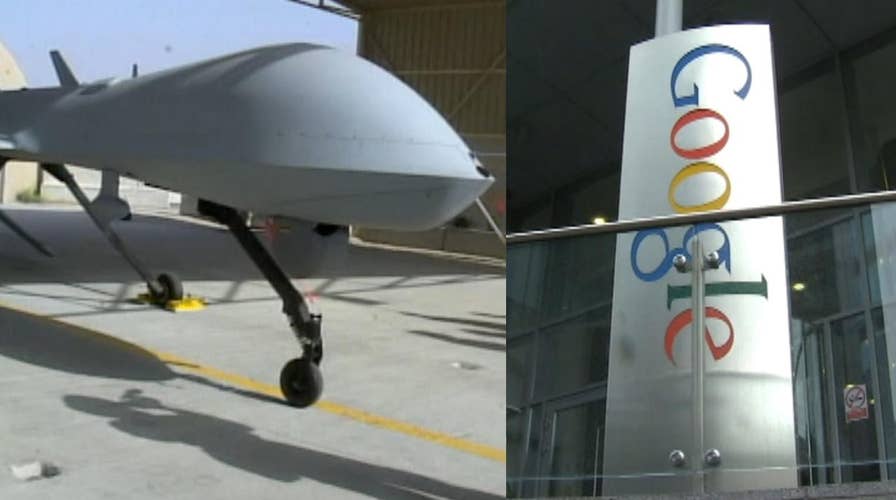Google helps the Pentagon with drones amid concerns
How Google is helping the Pentagon with military drones and why it’s concerning to some of the tech giant’s employees.
Google’s artificial intelligence technologies are being used by the U.S. military for one of its drone projects, causing a stir both inside and outside the company.
The pilot project with the Defense Department’s Project Maven, an effort to identify objects in drone footage, has apparently been discussed within the company over the last week when information about it was shared on an internal mailing list, according to Gizmodo.
Sources told the tech news site that employees at Google were outraged the company would offer its expertise to the military for surveillance technology. Some critics said the project raised broader ethical questions about artificial intelligence and its usage.
GOOGLE GETS SUED OVER RAMPANT BRO CULTURE

An Airspace Systems Interceptor autonomous aerial drone flies during a product demonstration in Castro Valley, California March 6, 2017. (Reuters)
Last fall, former Google Executive Chairman Eric Schmidt addressed the tech industry’s concerns about collaborating with the Pentagon during a keynote talk at the Center for a New American Security.
“There’s a general concern in the tech community of somehow the military-industrial complex using their stuff to kill people incorrectly,” Schmidt said. While Google says its involvement in Project Maven is not related to combat uses, the issue has still sparked concern among employees, sources told Gizmodo.
Project Maven, also known as the Algorithmic Warfare Cross-Functional Team (AWCFT), was established in April 2017. In total, the Defense Department spent $7.4 billion on artificial intelligence-related areas in 2017, The Wall Street Journal reports.
“As numerous studies have made clear, the department of defense must integrate artificial intelligence and machine learning more effectively across operations to maintain advantages over increasingly capable adversaries and competitors,” former Deputy Defense Secretary Bob Work wrote in a memo, according to a Pentagon press release.

The U.S. Department of Defense is seen above. (AP)
The project’s first assignment was to help the Pentagon efficiently process the deluge of video footage collected daily by its aerial drones. The amount of footage was so vast that human analysts can’t keep up, according to Greg Allen, an adjunct fellow at the Center for a New American Security, who co-authored a lengthy July 2017 report on the military’s use of artificial intelligence.
The press release claims that Maven’s first focus was to detect “38 classes of objects that represent the kinds of things the department needs to detect, especially in the fight against the Islamic State of Iraq and Syria.” The program now provides the military the ability to track people as they come and go from various locations, Gizmodo added.
GOOGLE GETS 2.4M REQUESTS FROM EUROPEANS TO BE 'FORGOTTEN'
Google has a mixed history with defense contracts. When it purchased robotics firm Shaft, it pulled the company’s systems from a Pentagon competition. When it owned robotics firm Boston Dynamics, the company was attempting to make a robotic horse for ground troops, which was ultimately rejected by the U.S. Marines.
A spokesperson for the Defense Department declined to tell Gizmodo whether Google was its only private industry partner on Project Maven or to clarify Google’s role in the project.
“Similar to other DOD programs, Project Maven does not comment on the specifics of contract details, including the names and identities of program contractors and subcontractors,” the spokesperson said.









































